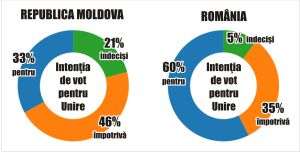
The survival of empires, and even that of countries that do not harbor such ambitions, depends on the existence of at least two fundamental conditions: a functional economy, that ensures its citizens' prosperity, and social cohesion. The first condition is necessary, but not sufficient, for the latter to be met.
Unfortunately, neither of those conditions is met by Romania, and its role of member of the EU is not enough, especially now when the danger of it slipping into the gap between two empires, Europe's "non-imperial" one and that from the East, has increased.
I recently saw a map of Europe and Asia which traced the sea and land commercial routes of the strategic plan proposed by China's president, known as "One Belt, One Road". Romania is outside both.
Another strategic mistake of "our" leaders is also the neglecting of the new financial institution Asian Infrastructure Investment Bank (AIIB), also created upon China's initiative, where the most important states of the EU are among the founding members. Not even rich countries outside the EU, such as Norway or Switzerland, had the leisure of ignoring the AIIB.
How has it come to this? Was it the ineptitude and the incompetence of the authorities or was it just a plundering of historical proportions, "allocated" equally, regardless of the political doctrine of the people in power?
After just a few months we have returned to the situation where it's the turn of the "left" to destroy what's left. The preferred "weapon" is the state budget, which has once again been built through the complete disregard of the mechanisms that make possible the generation and increase of its revenues, almost exclusively by the private sector.
In the absence of sufficient revenues, all that is left is the option of "accumulating" new debts, justified by the need of building infrastructure, which is seen as an engine of economic growth.
Unfortunately, not even the experience of the developed countries can be given as an example, especially in the new economic environment instated since the beginning of the global financial crisis. Not even there does the hope of a turnaround through infrastructure work, because the problems are structural and have been caused by the ultra-lax monetary policy of central banks over the last few decades.
Considering how infrastructure works get done here, the only certainty remains the overleverage for nothing, amid the failure to understand the factors that influence economic growth.
Unfortunately, the ignorance in that regard seems to exist at the level of the National Bank as well. "I would say that we are currently living in a paradox - we are perhaps in the most favorable economic situation of Romania's post-communist route, but the risks to the macrostability are greater than ever", said governor Mugur Isărescu at a conference of October 2016.
It isn't in fact a paradox. The risks to the macrostability are bigger that the economic situation only seemed more favorable then.
"I don't think that we can talk about a sustainable economic growth", Ionuţ Dumitru, the president of the Fiscal Council said recently, in a conference organized by the online publication cursdeguvernare.ro and the Romanian Chamber of Commerce and Industry (CCIR), which claimed that "the whole growth of the GDP last year was consumption based".
Dumitru also said that "in the last 10 years the economic growth of Romania has been volatile, which is undesirable for the development of a country", according to profit.ro.
Since the recession of 2009, which none of the authorities of the state, including the National Bank of Romania, foresaw, the public debt increased 130.2% until 2016, reaching 339.2 billion lei, while the GDP has only increased 48.7%, to 759.2 billion lei.
The public debt has thus reached 44.7% of the GDP in 2016, according to the government methodology which includes the guarantees issued by the central and local authorities, from 19.8% in 2007 and 28.9% in 2009.
But how long can this go on, when the bill is rising quickly? According to data from Investing.com, the spread between the yield of Germany's and Romania's bonds has increased this month to a 3-year high, as the yield of Romanian bonds is the highest in the EU, with the exception of Greece.
It is obvious that the countries in the Eurozone benefit from the money printing of the ECB and the spreads compared to Germany are artificial, but this situation can not endure forever. The end of the irresponsible monetary policies of the ECB will probably lead to an unpredictable dynamic of the financing costs of the broke countries of the EU, with seriously harmful effects for Romania as well.
The warning signs have not prevented the government, however, from suspending the debt ceiling for the local authorities, amid the exhaustion of the domestic resources for the co-financing projects that benefit from European grants. The mayoralties, well known for their "cautiousness", can now take out loans that they can call "own resources", because "they have the ability to borrow at interest rates better than the ones that the treasury gets from commercial banks, or from other lenders", as stated in the government's press release.
Since the debt ceiling has been removed, why didn't the government go farther with other suspensions, that would create the necessary framework for fulfilling its electoral promises?
Who says, for instance, that the law of gravity is immutable? Wouldn't eliminating it make it easier to start projects for the construction of some truly hanging gardens in the major cities, with European grants, so that the quality of life would be pushed sky high and make even Semiramis jealous?
Presidential advisor Cosmin Marinescu recently warned again about the threat of state borrowing to the stability of the future budgets.
Fortunately, the outlook for financing costs, which are in an incipient stage of the new global rising trend, can significantly contribute to bringing the authorities back to Earth.
The hope for that to happen may be vain, however, as shown by a recent statement by one of the members of the government, who said that "we are not letting go any of the promised government measures", amid the warnings of the IMF concerning the implications of raising pensions.
Similar warnings, concerning the overshoot of the budget deficit target, also came from the European Commission, but they didn't have any weight, considering the obvious hypocrisy of the authorities in Brussels, who look the other way when it comes to the violation of the Stability Pact by the "heavyweights" of the Union.
The hypocrisy of the European Commission is irrelevant anyway. The Romanian authorities should take steps to allow the country to develop on the basis of private entrepreneurship and the principles of market economy, even if they go against the recommendations of the "planners" in Brussels. At any rate, a deficit of 3% of the GDP is far too high, and the "dance" of the European authorities around that target did nothing more than drive many countries to the brink of sovereign default, which is only being avoided with the printing press of the ECB.
That level was where we ended up at the end of the last decade, but the "help" we got from the European Commission and the IMF "saved us". The very high price of that "rescue", which we will be paying for many years still, however, is, not, however, the one represented by interest payments. The true cost is that Romania "missed" the chance of a "glorious" economic collapse, which would have sent the whole political class, as well as the top management of the NBR to the history compost heap.
Unfortunately, that wasn't possible. The political class proved an unshakable unity when faced with the prospect of losing their privileges.
It is precisely those privileges, combined with the constant measures to undermine private entrepreneurship, they have led to the accelerated increase of social inequalities. And for the irony to be complete, the people who are responsible for those inequalities, promise every election that they will fix them. The national interest? Perhaps some other time.
Next year we will be celebrating a century since the Great Union of Alba Iulia. If we keep going down this path of social and economic destruction, in about 100 years more we won't be celebrating anything else.






































